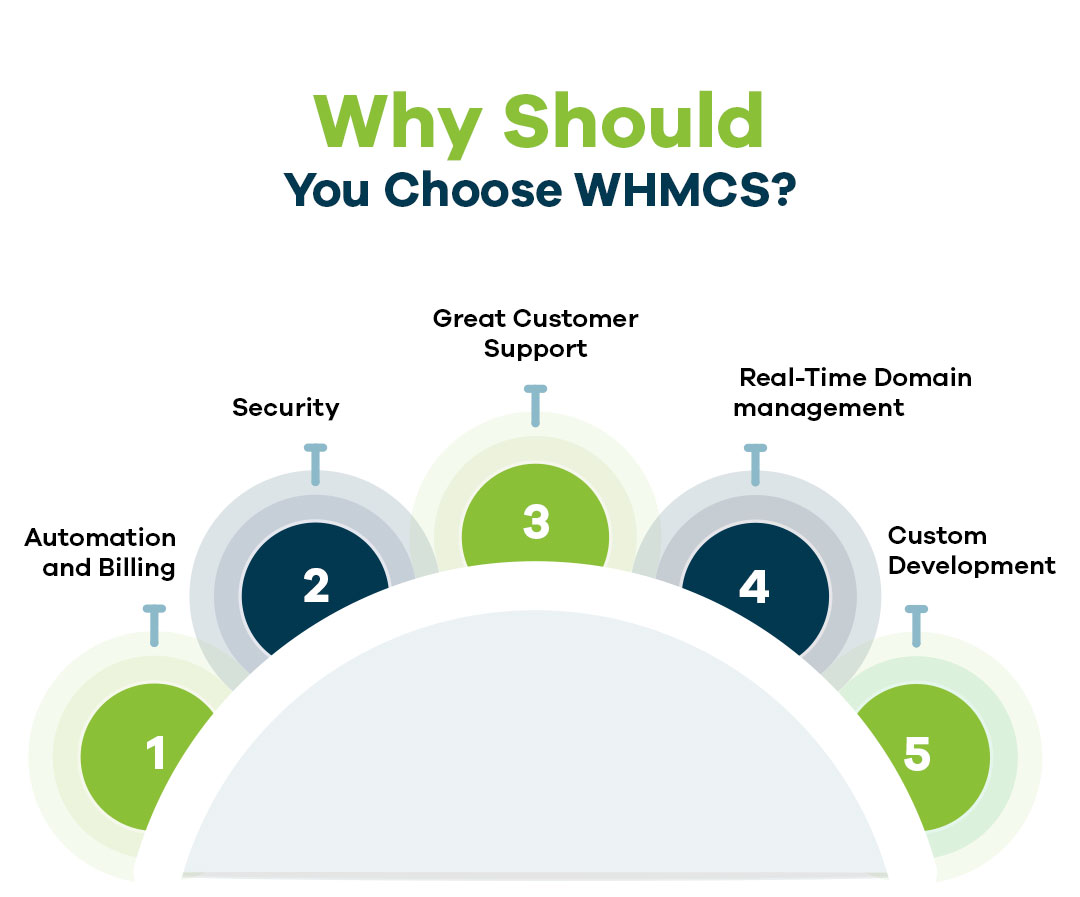1. Understanding Web Hosting
Web hosting is a service that allows individuals and businesses to publish their websites on the internet. It involves renting space on a server to store website files, databases, and applications. There are several types of hosting, including:
-
Shared Hosting: Multiple websites share resources on a single server, making it cost-effective but limiting performance.
-
VPS Hosting: Virtual Private Server (VPS) hosting provides dedicated resources within a shared environment, offering better performance than shared hosting.
-
Dedicated Hosting: A single website has full control over an entire server, ensuring optimal performance and security.
-
Cloud Hosting: Websites are hosted on multiple servers, ensuring scalability and reliability.
Choosing the right hosting plan depends on website traffic, security requirements, and budget.
2. What is WHMCS?
WHMCS (Web Host Manager Complete Solution) is an all-in-one automation platform designed for web hosting providers. It streamlines billing, account management, and customer support, making it a vital tool for hosting businesses. Key benefits include:
-
Automated Billing: WHMCS generates invoices, handles recurring payments, and integrates with multiple payment gateways.
-
Domain Management: It facilitates domain registration, transfers, and renewals with integrated domain registrars.
-
Client Management: WHMCS provides a centralized dashboard for managing customers, tracking orders, and handling support tickets.
-
Hosting Automation: It integrates with cPanel, Plesk, and other control panels to automate account provisioning.
WHMCS reduces manual tasks, enhances efficiency, and improves customer experience.

3. Key Features of WHMCS
WHMCS offers numerous features that benefit hosting providers:
-
Customizable Client Portal: Users can access a self-service portal to manage their accounts, services, and invoices.
-
Multi-Currency Support: WHMCS supports multiple currencies, enabling global transactions.
-
Tax Automation: It automatically calculates and applies tax rates based on customer location.
-
Fraud Prevention: Integrated fraud detection tools help prevent unauthorized transactions.
-
Support Ticket System: A built-in helpdesk allows customers to submit tickets and receive support efficiently.
These features make WHMCS a comprehensive tool for web hosting businesses.

4. WHMCS Security Best Practices
Securing WHMCS is crucial for protecting sensitive customer data. Here are best practices to enhance security:
-
Keep WHMCS Updated: Regular updates fix vulnerabilities and improve system performance.
-
Use SSL Encryption: Enabling SSL secures transactions and prevents data interception.
-
Enable Two-Factor Authentication (2FA): Adds an extra layer of security for user logins.
-
Restrict Admin Access: Limit admin panel access to specific IP addresses.
-
Regular Backups: Frequent backups ensure data recovery in case of system failures or cyberattacks.
Implementing these measures safeguards business operations and customer information.

5. How to Optimize WHMCS for Business Growth
To maximize the benefits of WHMCS, businesses should:
-
Automate Workflows: Use WHMCS automation features to minimize manual tasks.
-
Enhance User Experience: Customize the client area for seamless navigation.
-
Leverage Integrations: Connect WHMCS with third-party tools such as CRM, accounting software, and marketing platforms.
-
Monitor Performance Metrics: Analyze reports to track revenue, support efficiency, and customer satisfaction.
-
Scale Infrastructure: Upgrade hosting resources to accommodate business growth.
By optimizing WHMCS, hosting providers can improve efficiency, boost revenue, and enhance customer satisfaction.
![]()



You must be logged in to post a comment.